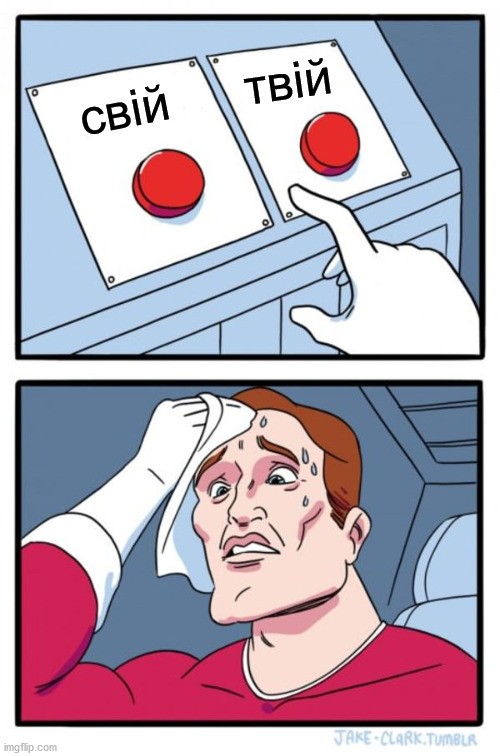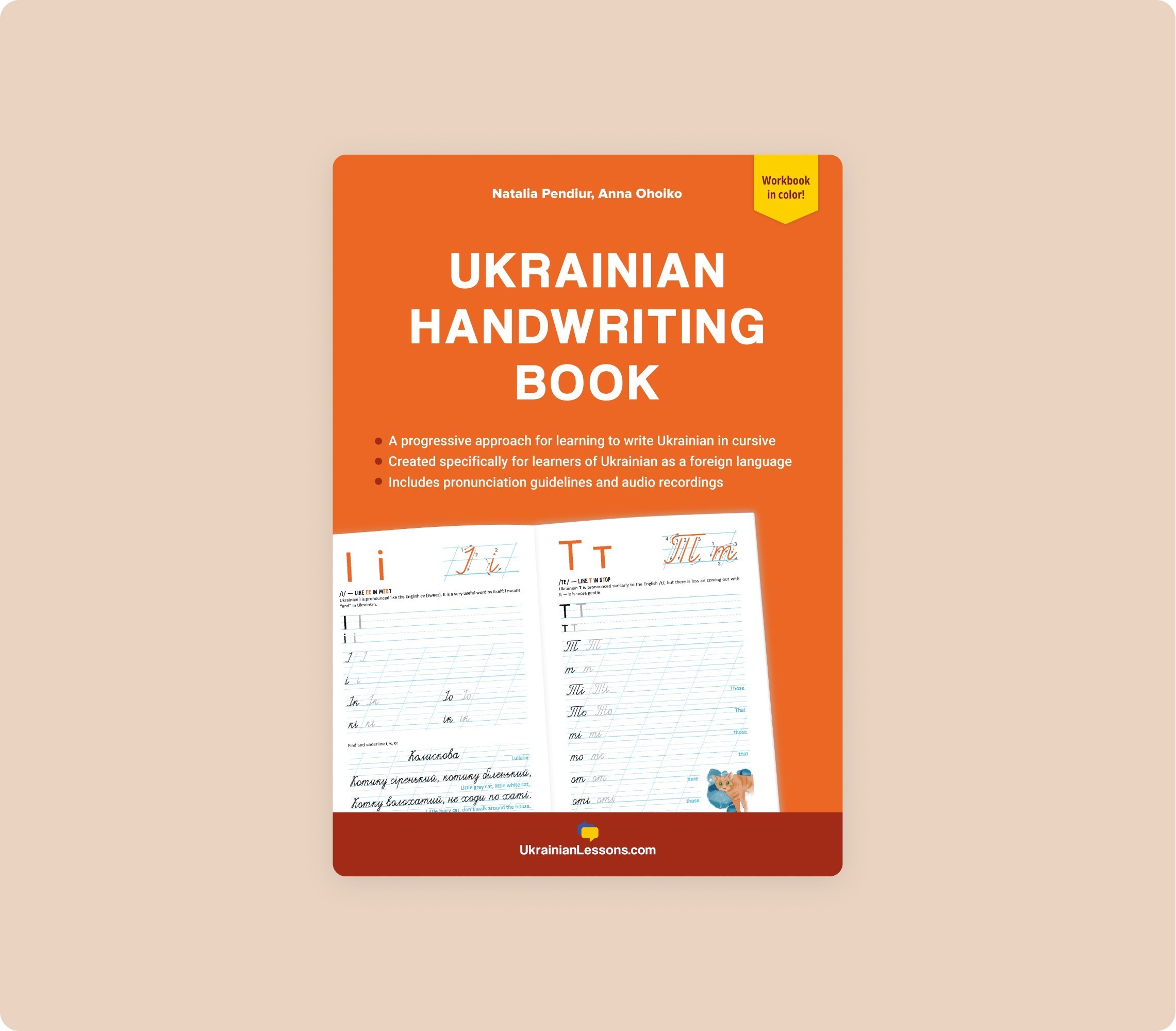"" has been added to your cart
🎅🎁 Your Ukrainian Christmas Present: Books, Podcast Subscriptions, Posters 20% OFF
Days
Hours
Minutes
Seconds
- Ukrainian Lessons Podcast:
Start learning Ukrainian, improve your language skills and discover Ukrainian culture with Anna Ohoiko and the weekly Ukrainian Lessons Podcast episodes.
- 5 Minute Ukrainian:
5 Minute Ukrainian is a podcast from Ukrainian Lessons that is all about conversations.
Ukrainian Lessons Podcast:
-
Season 1 (Lessons 1-40)
For Beginners -
Season 2 (Lessons 41-80)
Elementary to Intermediate -
Season 3 (Lessons 81-120)
Intermediate level -
Season 4 (Lessons 121-160)
Intermediate to Advanced ― 1 -
Season 5 (Lessons 161-200)
Intermediate to Advanced ― 2 -
Season 6 (Lessons 201-240)
Intermediate to Advanced ― 3
Ukrainian Lessons Podcast:
Start learning Ukrainian, improve your language skills and discover Ukrainian culture with Anna Ohoiko and the weekly Ukrainian Lessons Podcast episodes.
-
Season 1 (Lessons 1-40)
For Beginners -
Season 2 (Lessons 41-80)
Elementary to Intermediate -
Season 3 (Lessons 81-120)
Intermediate level -
Season 4 (Lessons 121-160)
Intermediate to Advanced ― 1 -
Season 5 (Lessons 161-200)
Intermediate to Advanced ― 2 -
Season 6 (Lessons 201-240)
Intermediate to Advanced ― 3
5 Minute Ukrainian:
5 Minute Ukrainian is a podcast from Ukrainian Lessons that is all about conversations.
















